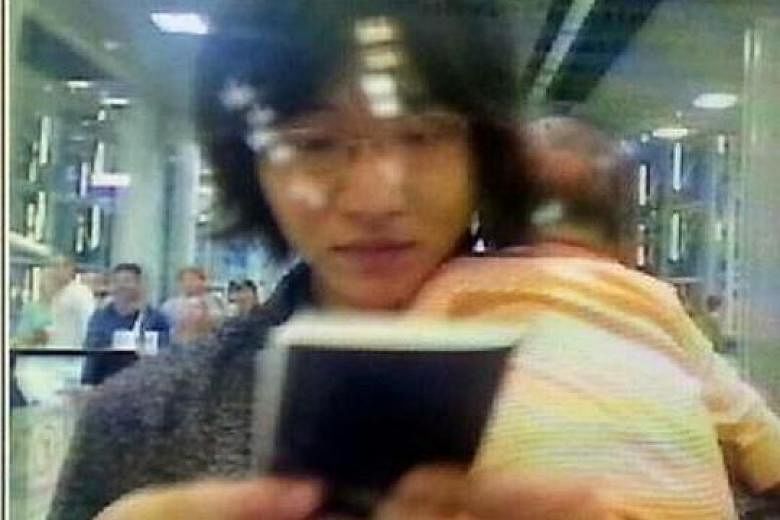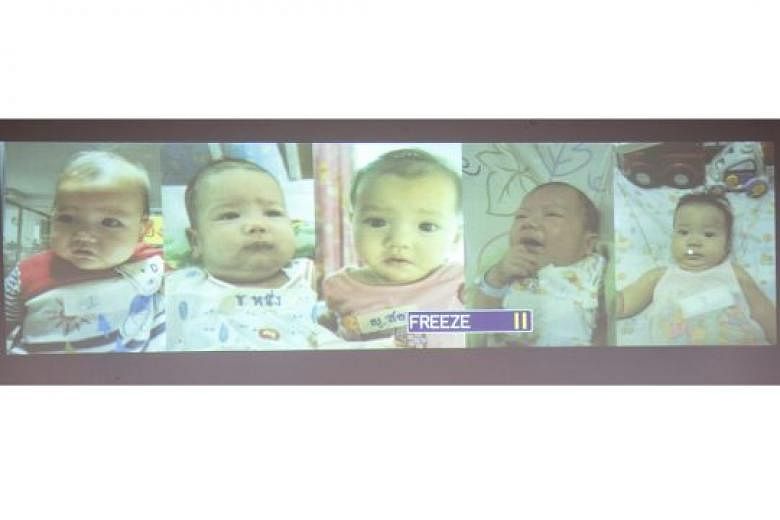The Japanese millionaire who last week won custody of 13 children he fathered through surrogates was flagged to Interpol five years ago by a fertility clinic founder disturbed by his desire to have up to 1,000 children.
Mr Mitsutoki Shigeta, 28, had approached the New Life clinic in Bangkok looking for surrogate mothers. But after the centre provided him with two - one of whom gave birth to twins - he promptly demanded more.
The clinic's founder Mariam Kukunashvili said in 2014: "He said he wanted 10 to 15 babies a year, and that he wanted to continue the baby-making process until he's dead."
He asked clinic staff how he could freeze his sperm, and told them he wanted 100 to 1,000 babies, she added. She also learnt that Mr Shigeta had at the same time commissioned three other surrogates from a different agency.
New Life, which is headquartered in the United States, declined to work with him again, and Ms Kukunashvili in 2013 warned Interpol about him, writing "something is very wrong here". Interpol told The Washington Post it did not receive her messages.
A year later, Mr Shigeta emerged at the heart of a "baby factory" scandal that has perplexed the world.
A separate tip-off had sent Thai police to his Bangkok condominium, where they found nine infants aged between two weeks and two years - each with its own nanny - and rooms filled with playpens, bouncy chairs, baby bottles and nappies.
This month, Mr Shigeta grabbed headlines again when he won sole custody of 13 children fathered via Thai surrogate mothers.
Noting that Mr Shigeta had no history of bad behaviour, Bangkok's juvenile court said he had enough money to support the children, and had made plans to send them to an international school in Tokyo.
Mr Shigeta is not married and is believed to have other surrogate children, including two in India.
Despite the glare of international attention, much of his personal life remains shrouded in mystery.
The Washington Post reported that after the authorities named Mr Shigeta in 2014, his lawyers "blanketed Japanese media with demands to not publish his name or names of his family members".
The press, however, revealed that he is the eldest of tycoon Yasumitsu Shigeta's three sons.
According to The Japan Times, the older Mr Shigeta - whose net worth is US$4.2 billion (S$5.5 billion) - is the founder of Hikari Tsushin, a telecommunications and office automation firm, where his eldest son earns "millions of dollars a year in dividends" as a major shareholder. Mr Mitsutoki Shigeta is said to have businesses of his own.
The case has baffled investigators. Thailand's Interpol director Apichart Suribunya said in 2014 he has never seen a case like this. "We are trying to understand what kind of person makes this many babies."
The initial suspicion was human trafficking, but Mr Shigeta's former lawyer Ratpratan Tulatorn told Thai media in 2014: "These are legal babies, they all have birth certificates.
"There are assets purchased under these babies' names. There are savings accounts for these babies, and investments. If he were to sell these babies, why would he give them these benefits?"
Mr Shigeta's personal motives still appear murky.
His current lawyer, Mr Kong Suriyamontol, argued during the custody trial that Mr Shigeta "was born in a big family and wanted the children to grow up together". He hoped to pass his fortune and business to his children, he said.
But Ms Kukunashvili said Mr Shigeta had told the manager of her Bangkok fertility clinic that "he wanted to win elections and could use his big family for voting", and that the "best thing I can do for the world is to leave many children".
He hired his Thai surrogate mothers before the country banned foreigners from seeking surrogacy in 2015, paying each up to US$12,500.
The Associated Press in 2014 spoke to one of them, a slum resident who gave her name only as Wassana. She said she met Mr Shigeta - who she described as tall and shaggy-haired - two months after giving birth. He did not thank her for carrying his child, she said.
"He never introduced himself. He only smiled and nodded," she recalled. "His lawyer did the talking."



